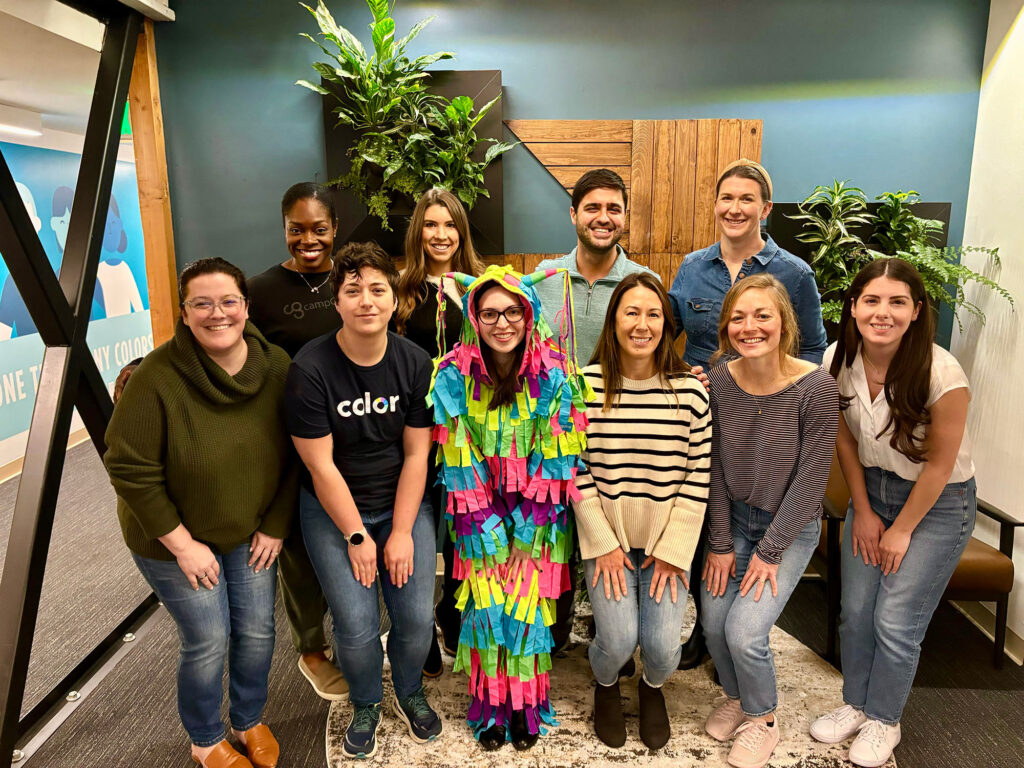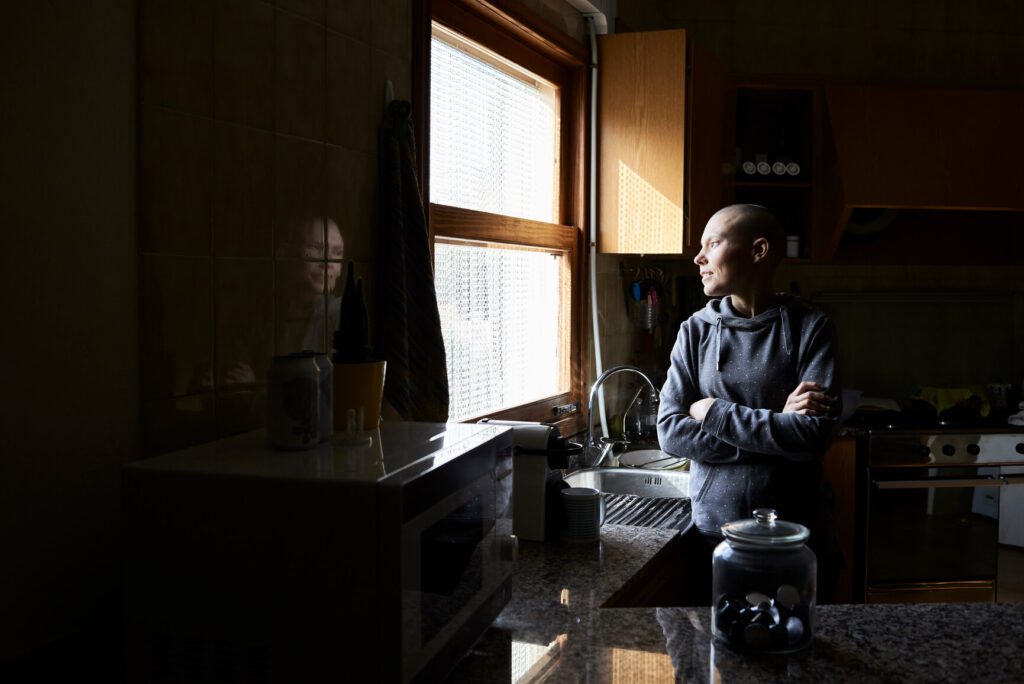News & Articles
‘A focus on education and empathy’: Genetic Counseling Awareness Day 2019
Abby Reisinger
Genetic Counselor Awareness Day is Thursday, November 14, 2019. Genetic Counselor Awareness Day is dedicated to raising awareness and interest about genetic counselors and helping the public understand the important and supportive role genetic counselors play in healthcare.
To celebrate genetic counselors, we sat down with one of Color’s own to learn more about how her path to genetic counseling started at home and how her experiences have fueled her passion to help individuals navigate their risks and take actions that lead to healthier lives.

For Monica Stamp, MS, LCGC, genetic counseling is personal.
When Monica was in middle school, her mother had her first mammogram and was diagnosed with breast cancer for the first time. It was the early 2000s and the conversation around genetics and genetic counseling had only just begun — it took being diagnosed a second time, six years later, for a doctor to recommend BRCA1 and BRCA2 genetic testing that would screen for variants that could lead to an increased risk of breast cancer.
“My mother’s Jewish, so at the time of her second diagnosis, it was assumed if she had any mutation, it would certainly be one of the three Ashkenazi Jewish founder pathogenic variants in BRCA1 and BRCA2. It was not.” Monica’s grandmother died at a young age and never had cancer, but her great-grandmother died from breast cancer, so it was surprising that she was not found to have one of the founder BRCA1 and BRCA2 variants. The Helm family was left without an answer.
Throughout her mother’s treatment, Monica skipped school to attend her mother’s chemotherapy treatments and stayed nights in the hospital with her after surgery. Still, going through the genetic counseling process alongside her mother inspired her. She was in high school, thinking about the future and her college major. “I had particularly noticed and loved the amount of time the genetic counselor was able to spend with me and my mother to help us understand her test results and the impact on our family. I chose to major in genetics because I knew I wanted to be in some form of medicine and wanted to develop the background to possibly become a genetic counselor. ”
While completing her graduate degree in genetic counseling, panel testing was introduced more broadly to the field. The ability to screen for more genes and pathogenic variants was an opportunity to get answers about not only her mother’s diagnosis, but her family’s history and future. “I said to my mom, you should get re-tested, there’s something going on here, [even though] it wasn’t one of the BRCA genes.” On additional testing ordered by a genetic counselor, her mother was found to have a pathogenic variant in the ATM gene, which is associated with a significantly increased risk of developing breast cancer. Monica subsequently went through testing and found she had the same variant.
After completing a few years of clinical experience, Monica joined Color as a genetic counselor and soon after, her second cousin was diagnosed with breast cancer. “We had been telling [my family] that they should get tested and no one had gotten tested. They live in a Jewish community in Chicago where there is a lot of discussion about the BRCA genes, but because my mom didn’t have [a variant in her] BRCA genes, it wasn’t registering that they needed testing.” Following her second cousin’s diagnosis, Monica immediately sent Color testing kits to her family in Chicago and more details about her family’s health heritage came to light.
Many more members of Monica’s family made discoveries about their own genetic risks, creating a chain reaction in the family that reached across generations. “Once a couple of other people in the family other than my Mom went through testing and tested positive, it was enough for everyone else to say, ‘okay, I’m going to take this to my doctor or test with Color’.”
Monica believes the real barrier to obtaining this information for her family members was accurate knowledge about how to get testing and the impact of the results. “Sometimes the process of getting genetic testing is challenging due to limitations of the system, like referrals to other providers, or provider knowledge of the variant in your family. In my family’s community, the thought was: it’s not one of the BRCA variants, so it’s nothing to worry about.”
Genetic counseling can help reveal the impact of pathogenic variants for individuals and their family members, as well as make sure appropriate testing is ordered, based on individual risk and interest. But for many, access to a genetic counselor is challenging — long waitlists for appointments and a shortage of counselors across the country make the service difficult to access quickly.
Genetic counselors at Color, like Monica, use automation in their counseling tools and are available to individuals over the phone, increasing efficiency and access in the field. In every step of the counseling process, from scheduling to case preparation to post-consult follow-up, Color’s genetic counselors use technology to streamline their processes so they can spend more time on what makes the most impact — actual time with patients. Individuals who use Color can access genetic counseling wherever in the world they are, at whatever time is most suitable to them, with most appointments available within a day or two. This kind of access and convenience helped Monica’s family discover results outside of normal expectations and understand them well enough to act on them.
“The focus on education and empathy in the genetic counseling profession is what initially attracted me to the field and continues to provide me with immense purpose now as a practicing genetic counselor over 15 years after that initial visit to a genetic counselor with my mother.”
Monica’s decision to follow her passion to Color came down to how much impact she knew she could have. “One of my major motivations to join Color…was to work with individuals who can help increase access to and use of genetic information through technology, design and product innovation. It’s great to utilize my very specific knowledge set, and to understand how to take something really specific [like genetics] and make it applicable to everyone, not just a woman with breast cancer — which is where I started my career.”
As for her relationship with her mom, Monica says there’s immense gratitude for her presence in their family. “My level for appreciation and thankfulness for her health, my health, my daughter’s health…it’s just beyond what I can put into words.”



